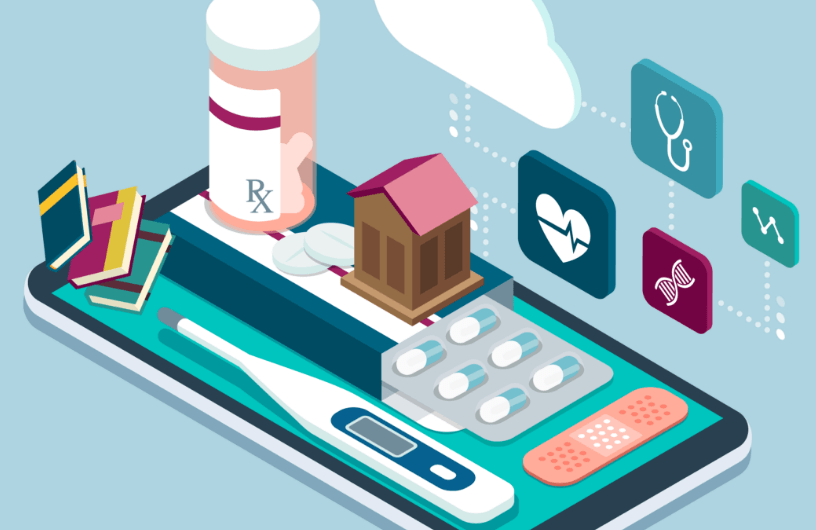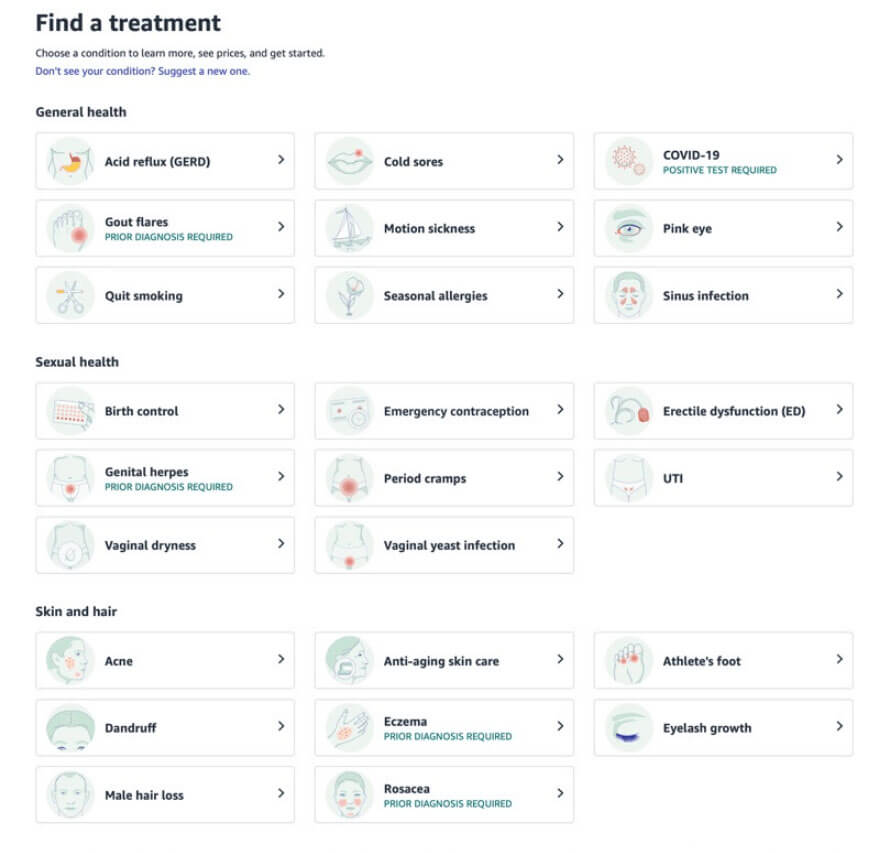

Books, Birdfeeders, Prescriptions?
Would you get diagnosed by Amazon Clinic?
Here at SFC Group, we are always keeping a finger on the pulse of industry news and trends. So, when I saw the most recent transformation in healthcare screaming loudly from my personal inbox, I knew I had to share it with all of you. There it was, with the subject line, “Treatment, diagnosis, and prescriptions at your convenience.” In other words, healthcare at my fingertips, brought to you by Amazon, no appointment necessary.
As a bit of a tech geek, admittedly I’d been anticipating this day to come. I’ve been following the big tech push for its foothold in healthcare for quite some time now. But 10 years ago, my bets were on Google, not Amazon, attempting to make it easier for everyone to track medical appointments and conditions all in one convenient online place. It wasn’t long after that an uproar in privacy concerns quickly debunked Google’s plans. Now, however, with a few more partnerships and purchases such as Fitbit—including all the user data that came with it—Google is back in the healthcare game with a focus on wearables and trackable digital healthcare devices. But I digress…
Back to Amazon Clinic taking the lead—now fully open for business in 33 states to treat a wide range of common conditions in their online store. (Yep, it’s that easy.) As conveniently as you can have a new shipment of dog food delivered to your doorstep, you can now treat both your eczema and erectile dysfunction all in one easy click.
So how does it work?
From the link in my email, I was taken to an easy-to-navigate Amazon Clinic microsite where I could select from a wide range of commonly occurring conditions including things like dandruff, aging skin, high cholesterol, birth control, and hair loss, just to name a few. From here, I could choose a clinic to write the prescription for me for one low, transparent price.
Once I’d reviewed my treatment possibilities, I decided I now desperately needed an anti-aging skin care solution—so I selected my state and picked a clinician to fulfill my youthful vision. This, however, was as far as I could go since I live in New York, one of the few states where Amazon Clinic is not yet available. Of course, now I really wanted the prescription-strength wrinkle cream… I wondered if I should call my mom in South Carolina to ask if I could send it to her address, just like the microwavable slippers I sent her for Easter. It was tempting. Then I thought about having to input her name and address to fill the prescription. (She does have Medicare, hmmm…). This brought up a whole flood of new ethical concerns.

I took a closer look and apparently all I needed to buy my way to great-looking skin were two photos of my wrinkles, a photo ID like a driver’s license, and 5 minutes to fill out a form. The Retin-A product itself would not be included in the cost of the Amazon “visit” (the $30 checkout fee). But my current medical insurance could be applied toward the purchase of my prescription. Suddenly, I felt my online shopping obsession taking a new turn.

There must be other ways to buy this stuff online, right? I started searching the internet for ways to purchase tretinoin (Retin-A) and found a slew of legit and not-so-legit online services where I could make the purchase without having to make a trip to the dermatologist. An astonishingly lengthy list of Google search results only confirmed that Amazon wasn’t so much the pioneer of online prescription sourcing as it was responsible for having brought it to the mainstream.
So, what does this all mean for the future of healthcare?
Well, Amazon says it’s in the business of “helping people access the products and services they need” and is “putting power back in the hands of the patients.” They believe the medical field remains somewhat patriarchal in “treating” patients rather than “working with” patients and that the markup in patient care is extraordinary. That’s fair.
What they don’t mention is the healthcare industry is now an $11T business and that big tech companies are using all your data and their technologies to get a bigger piece of the pie—and the race is definitely thick with competition.
Which brings us back to Amazon…
Amazon sees its future in providing online, non-urgent, and chronic care by offering care plans, prescriptions, and treatment recommendations as easily as you can say “Amazon Prime.” It gets interesting when you remember Alexa is always listening in at home and could soon begin recommending medical products and services based on your conversations. Additionally, Amazon owns Whole Foods, which offers a national chain of retail clinic space across the country, should they decide to go brick and mortar by opening a national chain of healthcare clinics. Maybe one day we will be prompted to add things to our grocery lists that pair superfoods with our conditions to help lower cholesterol or improve our collagen stores. Or receive audio suggestions to buy things like beets, exercise bikes, or (gasp) wrinkle cream. (I never did get the wrinkle cream, by the way—and Amazon knows that.)
